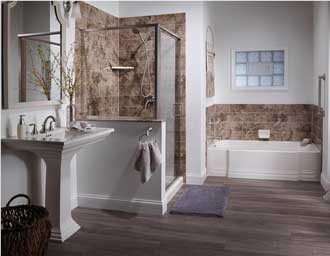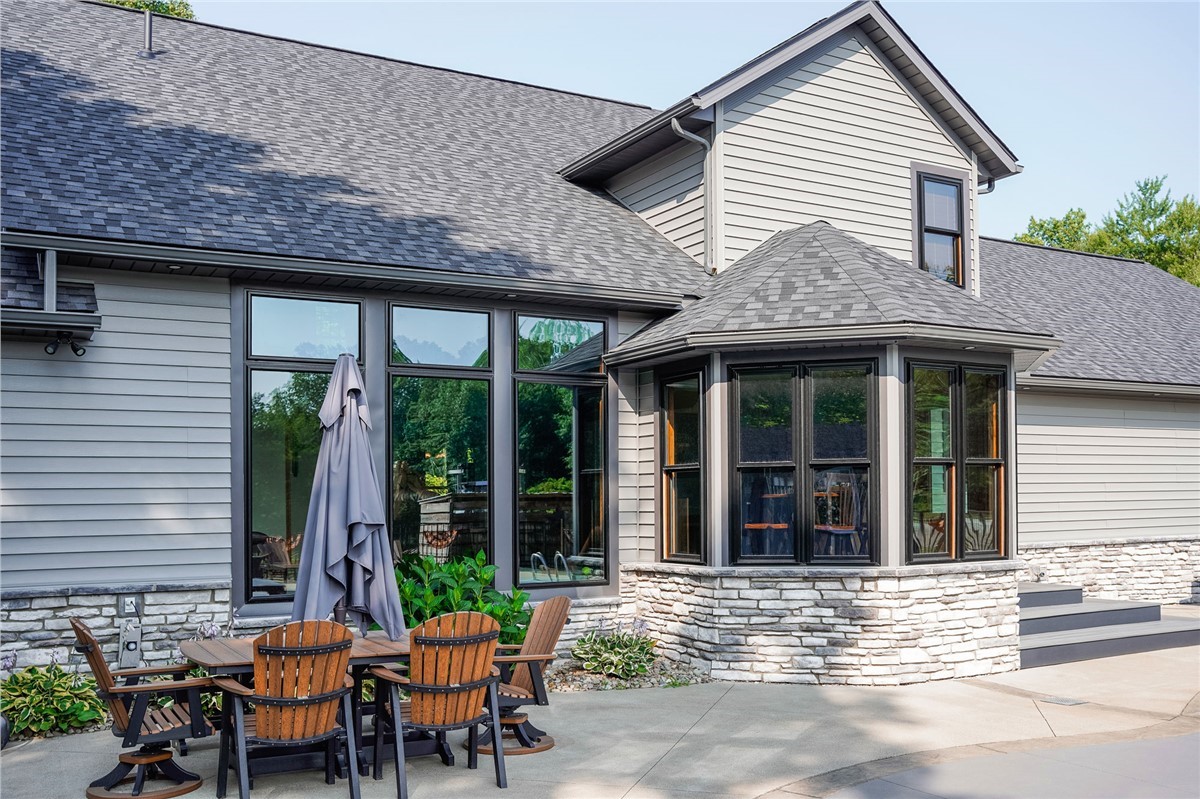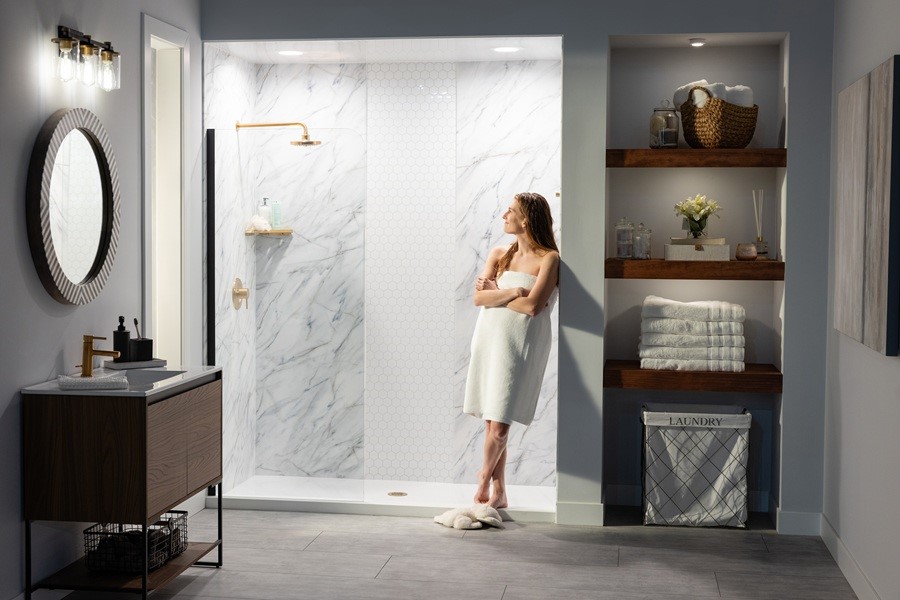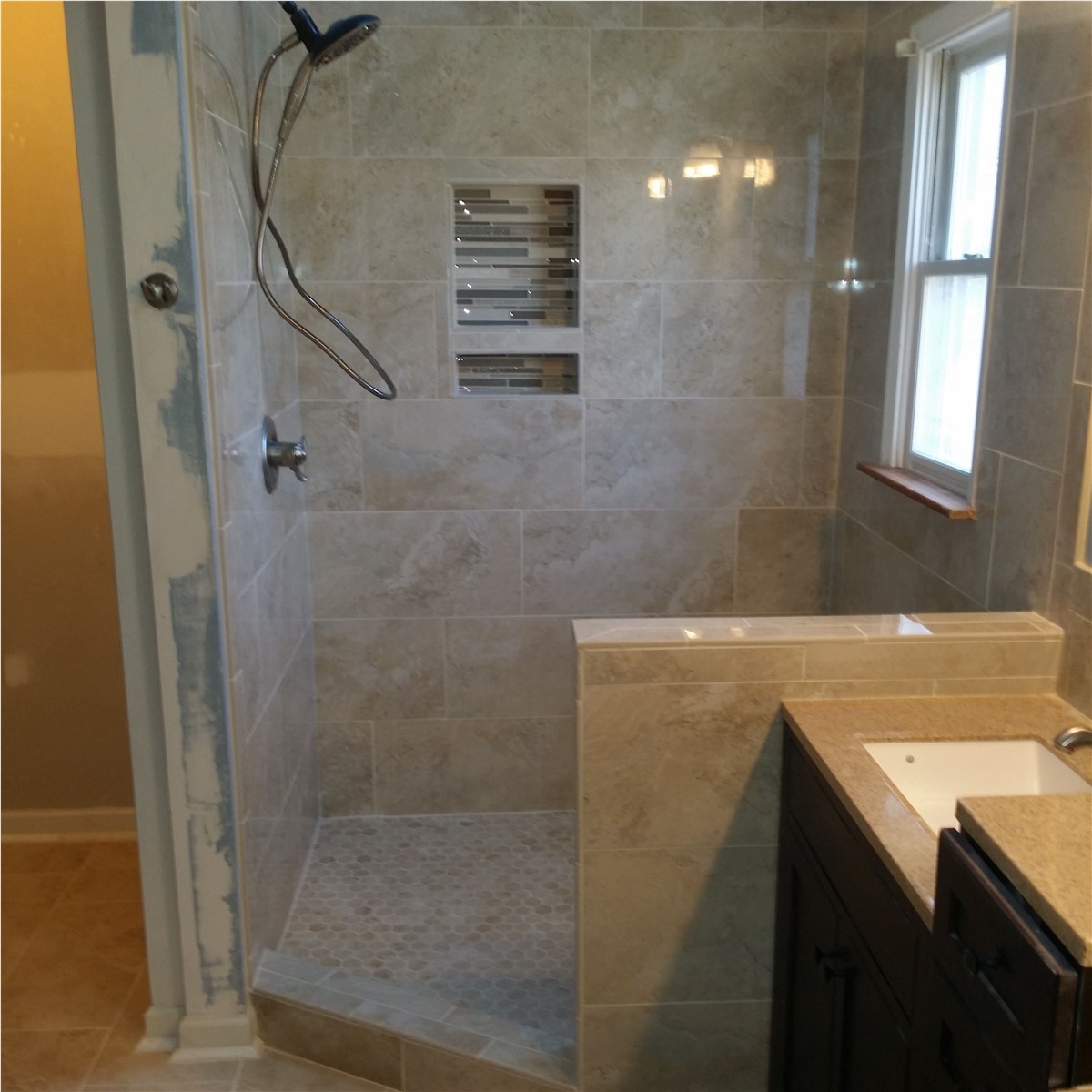
The type of surround wall you install in your bathroom is essential, as it works to protect your walls from water damage. Choosing the best material for shower walls is quite difficult since this decision often revolves around available space, budget, and personal preferences. Acrylic and tile surrounds are the two popular options that can be used for tub or shower walls. However, they both have their own benefits and downsides. Before making a final decision on whether to choose acrylic or tile walls, it is important to understand what makes these options different or unique from each other.
Acrylic Walls
The combinations and possibilities of acrylic walls are wide-ranging. Acrylic shower walls are permanently attached using a heavy-duty adhesive. This makes them one of the most customizable and versatile options for wall surrounds. They can be custom designed to mimic the looks of tile. The true benefits of acrylic walls are often realized after installation when you clean your bathroom and use your shower or tub on a regular basis. Acrylic eliminates the possibility of your shower or tub leaking over time because it is installed as panels on the wall. Acrylic is one of the best materials you can use to protect your walls from water damage.
Tile Walls
Tile walls have been used for decades because they have a variety of colors and designs to choose from. The large number of options makes them more adventurous in your bathroom design and overall decor. Despite the plethora of options, tile walls are still prone to leaking because of the nature of your bathroom, the grout applied and the shower itself. Adding a professional grade sealing on top of your tile is needed, but you may be forced to keep up with occasional resealing yourself in order to maintain the appearance and quality of tile walls.
Factors that Influence the Decision between Acrylic and Tile Walls
- Durability and Lifespan
Although tile walls are easy to get cracked or chipped, you can still maintain them with a professional grade sealing and proper care. On the other hand, acrylic wall surrounds are highly durable which makes them resistant to scratches or chipping. A properly installed acrylic wall is more likely to last longer than a tiled wall
- Cleaning and Maintenance
Tile walls can be wiped easily to prevent mold growth and stains. A grout cleaner should be used to clean the grout lines and the grout must be protected from stains and moisture through proper sealing. It is possible to replace or repair tile without having to replace the entire wall, but this must be done very carefully. The smooth surface of acrylic walls makes them easier to clean, as it requires a damp cloth and a quick wipe down. A non-abrasive cleaner should be used to clean stubborn dirt and soap scum.
- Design Versatility
Tile walls can offer many options in terms of design, pattern, and color. You can choose from ceramic, natural stone, glass, and porcelain tiles. This means that you have a wide variety of texture and design options to choose from when you go with tile walls. Acrylic wall surrounds are available in a wide range of colors, textures and styles. Some designs mimic the color and pattern of tile walls and can provide the same appeal as real tiles without the grout maintenance.
- Cost and Installation
Although homeowners can install tile walls on their own, the process involved is not only messy but it also takes a lot of time, effort and more skill than installing an acrylic wall. It makes much sense to hire a professional than handle the job by yourself. Acrylic surrounds are generally less expensive than tile walls when you factor in the use of mortar, grout, and special tools. The overall cost of installing tile walls is higher than the acrylic wall surrounds when you consider all the above factors.
Both acrylic and tile walls can enhance your bathrooms appearance. Although you may have fewer design and color options with acrylic surrounds, they are more durable, affordable and easier to maintain compared to tile walls. Unlike tile walls, they are highly resistant to stains, scratches, and moisture making them ideal for your bathroom.
Subscribe to AAPCO Home Improvement's Blog













Comments